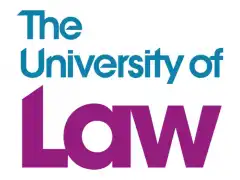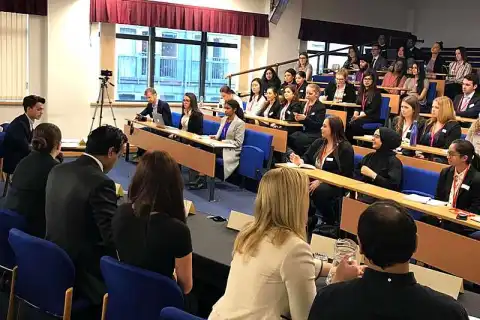Master of Laws - International Human Rights Law
- 1 year
- Duration
- 19,050 GBP
- Price
- Rolling admission
- Start
- Rolling admission
- Deadline
- Master
- Degree
- Mixed
- Format
- Multiple Locations / United Kingdom
- Location
- ULaw - The University of Law
- School
Program description
Graduate students interested in learning more about how international law serves to safeguard human rights around the world can pursue a Master of Laws (LLM) in International Human Rights.
Gain the knowledge and experience to advance in the human rights field with this globally recognized Master's degree program that can pave the way for careers such as Human Rights Lawyer, Police Analyst, Political Affairs Officer, Analyst, Barrister, and more.
Program structure
Main modules
Two week induction: For non-law students this includes a compulsory introduction to the law of England and Wales which must be completed before commencing your first modules.
You will complete:
- International Human Rights
- Research Methods Training (sessions throughout Terms 1 and 2)
- Dissertation in International Human Rights Law
You may then choose three from the list of elective modules which includes modules such as:
- Advocacy and Bar Skills
- Civil and Criminal Litigation
- International Criminal Law
- Mediation and Alternative Dispute Resolution
Price
Tuition fees for international students per year:
- 19,050 GBP (London)
- 17,700 GBP (Non-London)
Requirements for applicants
- Minimum Bachelor Degree
English language requirements for applicants whose first language is not English
- IELTS score required: 6.5 overall (at least 6.0 in each component)
- The University of Law English Test (ULET)*: 6.5 overall (at least 6.0 in each component)
- TOEFL iBT (not ‘MyBest Scores’): 79 (Listening/Speaking 19, Reading 18, Writing 23)
- Pearson PTE Academic: 72 overall (at least 64 in each component)
- LanguageCert ESOL (both papers must be sat within 3 months): B2 Written paper: overall 101 (min 33 in R/L/W); B2 Spoken paper: min 35/50
- Trinity ISE : ISE II: Two merits and two distinctions
- Cambridge FCE/CAE/CPE (First, Advanced, Proficiency): 176 overall (at least 169 in each component)
- Cambridge IGCSE syllabus 0500, 0510, 0511, 0522, 0900, 0991:1st Language: C; 2nd Language: B
- International Baccalaureate : 4
- Functional Skills: Pass
- Trinity ESOL for Life Skills: Pass
*The University of Law English Test (ULET) was developed to evaluate your level of English for undergraduate or graduate education. Our University will consider it as evidence of your proficiency in English. Additionally, it complies with the conditions for a UK visa for immigration (UKVI).
About the university

The University of Law is the largest law school in the United Kingdom and was formed in 1962 as The College of Law of England and Wales. It offers law degrees, specialized legal training, and continuing professional development courses for British barristers and lawyers. Its beginnings can be found around 1876.
Prior to receiving university status in 2012, the College of Law's educational and training business was divided off and incorporated as a private limited company. The College of Law had been established by royal charter as a charity in 1975. The College of Law Limited and The University of Law Limited were created from this. The college was given the authority to offer degrees in 2006. When it was given university status in 2012, it changed its name to The University of Law (ULaw) and became the first for-profit educational institution in the UK.
The university has nine campuses in the UK, located in Birmingham, Bristol, Chester, Guildford, Leeds, Manchester, Nottingham, and Sheffield, in addition to an overseas campus in Hong Kong.
All of our courses, from our undergraduate law degrees to our varied range of business courses and postgraduate programmes, are created using a special, varied, and innovative learning approach that has been shown to produce independent professionals capable of competing in the quickly changing professional world. Our courses are created to prepare you for the real-life difficulties of the working world with a focus on developing abilities in problem-solving, evaluating arguments, critical thinking, and commercial awareness.
Read more about The University of Law (ULaw), United Kingdom





